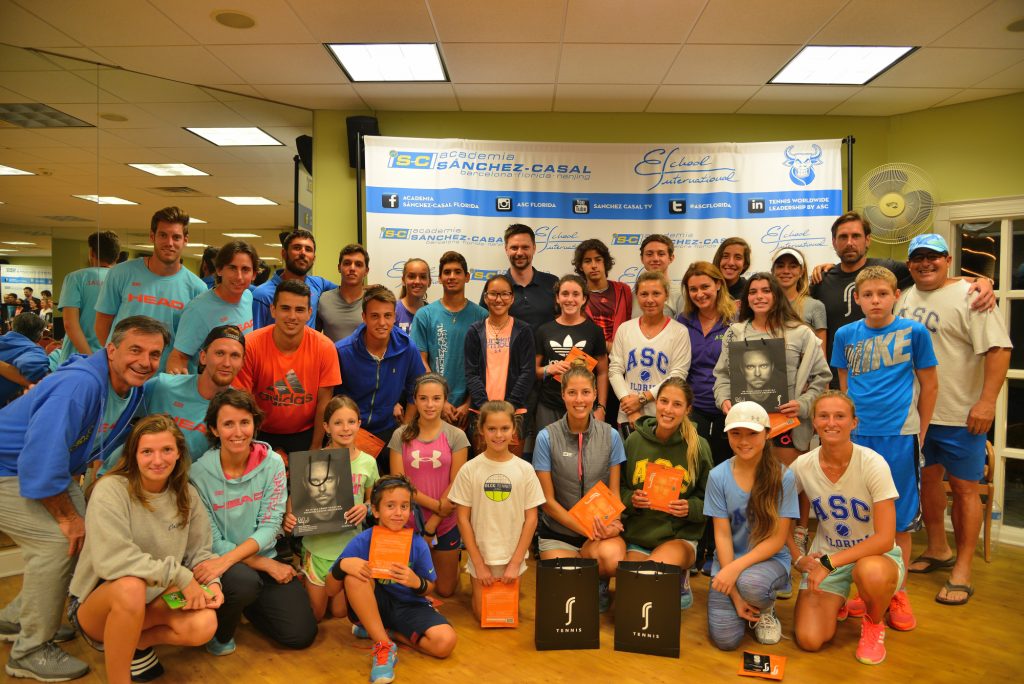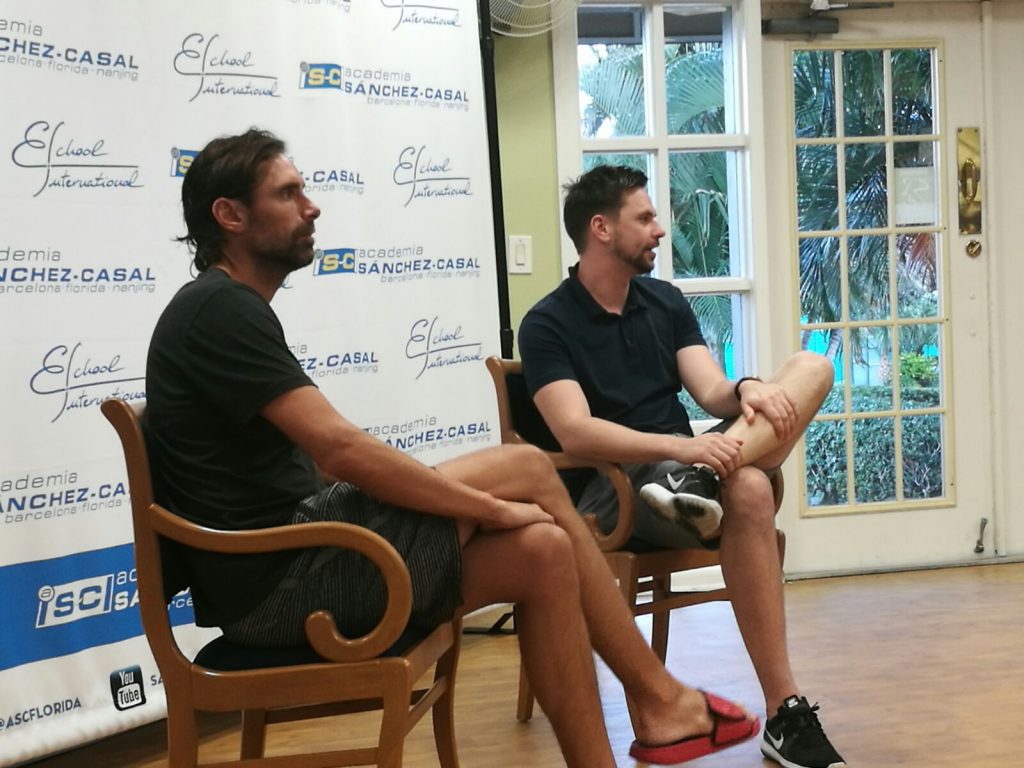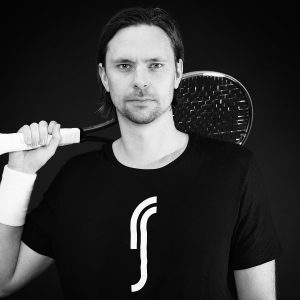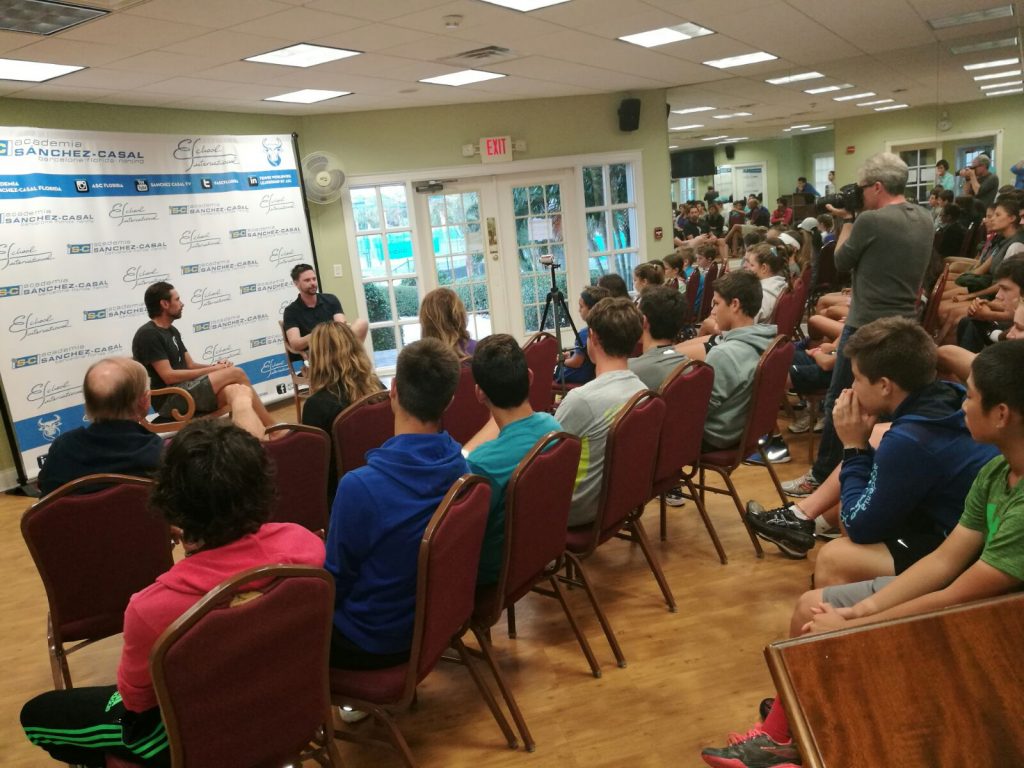
“Tennis is not about playing well, is about finding your way to win the match”
#16 Trust the habits developed to save you in times of adversity
By Emilio Sánchez Vicario, CEO & Founder at Sánchez-Casal Academy
As he walks into the room, all the ASC Florida student-athletes stare at him. You can feel their admiration towards him and the curiosity about what he is going to explain to them.
It’s a Wednesday afternoon in December. On this day every week, Sanchez-Casal players have a group mental session, where they work on their short and long-term training and learning objectives.
Today the dynamics are different since there is a special guest speaker, former #4 ranked ATP player Robin Söderling. The Swede, who won a total of 10 ATP tournaments, may best be remembered as the man who beat Rafa Nadal at the French Open in 2009 and prevented the player from Manacor from winning his fifth straight Coupe des Mousquetaires.
[On what it takes to reach your goals and dreams]
Soderling explains that when he was a kid he played tennis with many different types of players covering a wide range of ages. Being from a small town, there was just a single court at his club where he often waited after training hoping that someone’s partner didn’t show up. Then, he would offer to taking the missing person’s place and thus get in extra court time.
“I took the chance to play a lot of points, and I learned a lot by doing that. During 70% of the time, I would just play points and with the rest of my training I played against my coach. I did not only play points; I did it with many different styles”.
During his first full year on the junior tour he achieved four tournament victories and at 16 he won the prestigious Orange Bowl. Later as a pro, he explains, he changed his focus from having to play well all the time and winning easily to finding his way to win matches. “Tennis is not about playing well; it is about winning the match. You cannot play well all the time; rather, you have to find the solution to win the match”, he says. For him, this change of mindset advanced his game and he made the leap from being ranked #25 to #5.
Talking to Federer and Djokivic, Soderling realized that it’s impossible to play well all the time. Winning when you are not playing your best tennis is the most difficult part, but you can find the way to do it. To accomplish that, repetition is the key when you train. Moreover, nothing trumps confidence. The more you win, the more confidant you feel which helps you focus on the decisive points. Some days you feel fantastic while other days you really have to fight, and that’s when you have to find your way to win the match.
“Trust the habits you’ve developed to save you in times of adversity”
[The golden years]
2009 was a great year for Soderling. He had his match against Rafa Nadal in Roland Garros. “It was the first time I passed the 4th round in a Grand Slam. Getting into the quarters and semis gave me so much confidence”. Against all odds, Soderling, who was ranked #25 at that time, made history with a 6-2, 6-7, 6-4, 7-6 upset victory over the Spaniard.
“If you are confident, you can relax on court and play the most important points. Take Djokovic for example, he only won 3% more points that he lost. Every match is decided by a few key points.” Soderling peaked in 2010 at #4 and finished the year as # 5.
[Future plans]
The tennis legend has taken a new path in his career, shifting gears to become an entrepreneur. It was an illness that forced him off the courts for five years. “I was pushing myself to the limit. I had the mononucleosis and I was not feeling well, but I didn’t stop. The way I was handling everything took me to number 5 in the world, but looking back I should have changed things by resting more. “
After this long stoppage, he eventually had to retire. But once again, by trusting the habits he had developed, Soderling turned things around and funded a company, RS, devoted to developing high quality tennis equipment, from strings to grips to tennis balls. He wanted to make a contribution to the sport that he loves so much, but from a different perspective.
“I wanted to help players to find the equipment that best suit their games. The right material can be crucial in winning decisive matches; they can make the difference between winning and losing” he says.
[On what tennis means for him]
It took me nearly five years to realize how much I loved this sport. Tennis gave me so much and made me have so many experiences that I could not have had otherwise.
And it continues to provide to Soderling. We wish him the best in his new endeavor. I’m sure that in business just as in tennis, he will succeed.






















